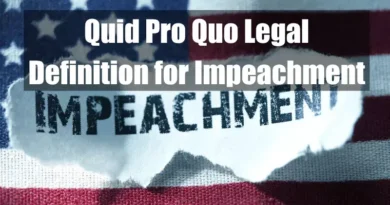I Scratch Your Back You Scratch Mine Meaning & Origins
Takeaways
| Key Points |
|---|
| The phrase “I scratch your back, you scratch mine” conveys the idea conveys the idea of mutual aid, where two parties agree to help each other with the understanding that both will benefit. |
| This expression is often used to describe an informal agreement or understanding in which one person offers assistance with the expectation that the favor will be returned in kind. |
| While the phrase can suggest a positive and reciprocal relationship based on trust and mutual benefit, it can also imply a sense of obligation, where favors are exchanged not out of goodwill but as part of a strategic or self-serving arrangement. |
| “I scratch your back, you scratch mine” also represents quid pro quo because both expressions rely on a balance of value exchanged between the two parties, where one party’s help is contingent on the return of a favor, making it a clear example of reciprocal dealings. |
The Meaning and Origins of “You Scratch My Back and I’ll Scratch Yours”

The phrase “You scratch my back, and I’ll scratch yours” is a well-known idiomatic expression that signifies a mutual exchange of favors or assistance. It suggests a reciprocal relationship where one party helps another, expecting to receive help in return.
The idea of mutual aid, reflected in the phrase, aligns with long-standing practices of reciprocity in human society, though there is no direct evidence of this particular expression in ancient literature or folklore. Although the exact origin of this phrase is not clearly documented, it is believed to have gained popularity in English in the 1700s (it’s unknown who first used it).
The phrase likely comes from a literal interpretation of back-scratching as an act that one cannot easily do for oneself, thus seeking help from another. The idea captures the spirit of helping someone in a way that may be challenging for them, with the unspoken understanding that the favor will be returned. This expression has found relevance across different contexts—political, social, and business relationships—where individuals or groups support each other to achieve mutual goals.
Unverified Historical and Nautical Origins
The phrase “If you scratch my back, I’ll scratch yours” is often believed to have historical ties, potentially linked to the English Navy in the 17th or 18th century. During this time, naval punishments for misconduct, such as absence or disobedience, were notoriously severe. One method of punishment was flogging with a cat o’ nine tails—a whip with multiple cords—administered to those tied to the ship’s mast.
Some accounts suggest that crew members may have made informal agreements to deliver gentler lashes in hopes of receiving the same leniency if they ever found themselves in similar situations. Although this explanation for the phrase’s origin is widely circulated, it remains speculative and lacks definitive historical evidence. Nevertheless, the idiom reflects a long-standing human tendency toward reciprocity and mutual aid, even in harsh circumstances.
Contemporary Usage and Examples

The phrase “If you scratch my back, I’ll scratch yours” remains highly relevant in modern professional and social settings, describing situations of mutual benefit. Its contemporary usage includes the following examples:
- Reciprocal Arrangement: The phrase implies a relationship where mutual favors or support are exchanged, typically with an expectation of reciprocity. This reflects a transactional but mutually beneficial arrangement often seen in professional partnerships.
- Successful Partnerships: In various contexts, partnerships—whether in business, politics, or social interactions—often thrive on the principle of reciprocity. If you scratch my back, I’ll scratch yours” illustrates how mutual exchanges can ensure both parties gain from the collaboration.
- Workplace Dynamics: While colleagues who engage in this reciprocal behavior can foster collaboration and support within teams, it’s important to recognize that excessive reliance on this principle can lead to favoritism or ethical concerns if it creates an imbalance in professional settings. Thus, while promoting teamwork, it should be managed with caution.
- Building Relationships: When approached with integrity, embracing reciprocity helps individuals cultivate relationships based on mutual assistance. These relationships, whether personal or professional, can be strengthened through acts of goodwill that invite future cooperation.
- Teamwork and Success: When applied appropriately, the philosophy behind this phrase encourages a reciprocity culture. It can foster teamwork, trust, and shared success if practiced ethically and with the genuine intention of mutual benefit.
Shades of Meaning: Genuine or Opportunistic?

The phrase “I’ll scratch your back if you scratch mine” historically refers to the concept of mutual assistance, where one person helps another with the expectation of reciprocity. Traditionally, this idiom has been understood as a reflection of cooperative relationships, where both parties work together in a spirit of goodwill, expecting to benefit from each other’s help. In such contexts, the exchange is often seen as genuine, fostering a sense of trust and mutual benefit between individuals or groups.
However, in modern usage, particularly in business and politics, the idiom has evolved to encompass more transactional dynamics. While the original connotation implies reciprocal kindness, today, it often suggests a calculated exchange of favors, where each party anticipates a return, sometimes driven more by personal or organizational interests than by altruism. This shift doesn’t necessarily imply a lack of morality but highlights the pragmatic or opportunistic nature of certain interactions, where the goal is more about achieving personal or strategic gain than fostering trust.
This broader interpretation captures the range of uses the phrase has taken on, from its positive origins in mutual support to its more strategic modern applications. In some cases, this exchange can appear neutral or even beneficial to both parties, whereas, in other contexts, it might imply a more manipulative or exploitative undertone. The specific nature of the interaction defines whether it leans towards cooperation or calculation.
Ultimately, the idiom’s meaning now encompasses a spectrum—from trust-based exchanges rooted in goodwill to more self-serving transactions designed to maximize individual benefit without necessarily breaking ethical boundaries. In American culture, this phrase is used in both positive and cooperative scenarios and situations where favors are exchanged with an eye toward personal gain. Depending on the context, the latter usage can sometimes be seen as “bending the rules” or skirting close to ethical ambiguity.
Representation of Quid Pro Quo
In terms of whether this represents “quid pro quo,” the answer is yes. “Quid pro quo” is a Latin phrase meaning “something for something,” and it closely aligns with the concept behind “I scratch your back, you scratch mine.” Both terms describe a transactional relationship where each party provides something in exchange for receiving something of equal or perceived value. While “quid pro quo” can sometimes carry negative connotations, especially in legal or ethical contexts, both expressions share the idea of reciprocity and mutual benefit, though the motivations behind the exchange can vary from genuine cooperation to more opportunistic dealings.
Conclusion
In conclusion, “You scratch my back, and I’ll scratch yours” remains a versatile expression that has evolved from its literal origins to describe a wide range of reciprocal relationships, from the genuinely collaborative to the more opportunistic.
FAQ
What does “quid pro quo” mean in legal terminology?
In legal terms, “quid pro quo” refers to an exchange where one party provides something of value in return for something else of value from another party. This concept is fundamental in contract law, where a valid contract requires consideration—each party must offer something of value to the other. The term underscores the reciprocal nature of agreements and is often summarized as “a favor for a favor.”
How is “quid pro quo” applied in contract law?
In contract law, “quid pro quo” signifies that each party involved in a contract must provide consideration, meaning something of value, to the other. This mutual exchange validates the contract. For instance, in a sales agreement, the buyer offers money as consideration while the seller provides the goods or services. Without such reciprocal consideration, a contract may be deemed unenforceable.
What is “logrolling” in the context of negotiations?
“Logrolling” is a negotiation strategy where parties make concessions on issues of lesser importance to them in exchange for gains on issues they prioritize more highly. This approach allows for mutually beneficial trade-offs, facilitating agreements that satisfy the primary interests of all involved. The term is often associated with political negotiations but is applicable in various bargaining scenarios.
Can “quid pro quo” arrangements be considered illegal?
While “quid pro quo” arrangements are foundational in many legal agreements, they can cross into illegality when they involve exchanges that are unethical or violate the law. For example, in bribery cases, offering something of value to a public official in exchange for favorable action constitutes an illegal “quid pro quo.” Similarly, in employment law, “quid pro quo” sexual harassment occurs when job benefits are conditioned upon sexual favors.
How does “quid pro quo” relate to political corruption cases?
In political corruption cases, “quid pro quo” refers to situations where a public official receives something of value in exchange for official actions. For instance, if a politician accepts campaign contributions with the explicit agreement to vote in favor of the contributor’s interests, this constitutes a corrupt “quid pro quo” arrangement. Such actions undermine public trust and are subject to legal penalties.
What is the origin of the phrase “I scratch your back, you scratch mine”?
The phrase “I scratch your back, you scratch mine” is believed to have nautical origins from the 17th century. During this time, punishments in the English Navy were severe, often involving flogging. Crew members would agree to administer lighter punishments to each other, effectively “scratching” rather than flogging, with the understanding that the favor would be returned if roles were reversed. This mutual agreement for leniency is thought to be the origin of the phrase.
How does “reciprocity” differ from “quid pro quo”?
While both terms involve mutual exchange, “reciprocity” is a broader social principle referring to the general practice of exchanging things with others for mutual benefit. It encompasses informal exchanges and social norms. “Quid pro quo,” on the other hand, is a specific legal term that denotes a clear, often contractual, exchange where each party provides something of value to the other.
What is “consideration” in contract law?
“Consideration” in contract law refers to something of value that is exchanged between parties entering into a contract. It is a fundamental element for the formation of a legally binding contract. Each party must provide consideration—such as goods, services, money, or a promise—to support their side of the agreement. Without consideration, a contract may lack enforceability.
Can “quid pro quo” be applied in international relations?
Yes, “quid pro quo” arrangements are common in international relations, where countries engage in reciprocal agreements to advance mutual interests. For example, two nations might agree to support each other’s positions in international forums or exchange resources and support in military or economic matters. These agreements are based on the principle of mutual benefit and reciprocity.
How does “quid pro quo” relate to insider trading laws?
In the context of insider trading, “quid pro quo” refers to the exchange of non-public, material information for personal gain. For instance, if an individual provides confidential company information to another, expecting that the recipient will trade on this information and share the profits, it constitutes an illegal “quid pro quo” arrangement. Such actions violate securities laws designed to maintain fair and transparent markets.
What is “logrolling” in legislative processes?
In legislative contexts, “logrolling” refers to the practice where lawmakers support each other’s proposed bills or amendments, often unrelated, to mutually benefit and ensure the passage of their respective legislative agendas. This reciprocal voting arrangement is a strategic tool used to garner support for measures that might not pass on their own merit.
How is “quid pro quo” relevant in employment law?
In employment law, “quid pro quo” refers to a form of sexual harassment where employment decisions are contingent upon an employee’s submission to unwelcome sexual advances or requests. This occurs when a person in authority, such as a supervisor or manager, offers or implies that an employee’s acceptance of sexual advances will result in job benefits like promotions, raises or continued employment. Conversely, refusal may lead to adverse employment actions, including demotion, dismissal, or unfavorable work assignments. Such conduct is prohibited under Title VII of the Civil Rights Act of 1964, which classifies it as a violation of federal law.
What constitutes “tangible employment action” in quid pro quo harassment cases?
A “tangible employment action” refers to a significant change in an employee’s employment status or benefits resulting directly from the acceptance or rejection of a supervisor’s sexual advances. Examples include hiring, firing, promotion, demotion, undesirable reassignment, or a significant change in responsibilities. In quid pro quo harassment cases, the presence of a tangible employment action is crucial, as it demonstrates that the harassment had a direct and adverse impact on the employee’s job.
How does “vicarious liability” apply to employers in quid pro quo harassment cases?
Under the principle of vicarious liability, employers can be held strictly liable for quid pro quo sexual harassment committed by supervisors or managers. This liability arises because individuals in supervisory positions are considered acting on the employer’s behalf. If a supervisor engages in quid pro quo harassment that results in a tangible employment action against an employee, the employer is typically held responsible, regardless of whether they were aware of the supervisor’s actions.
What legal remedies are available to victims of quid pro quo harassment?
Victims of quid pro quo harassment have several legal remedies available under federal law. They may be entitled to compensatory damages, which can cover medical expenses, lost wages, future economic losses, and compensation for emotional distress. In cases where the employer acted with malice or reckless indifference, punitive damages may also be awarded to deter future misconduct. Additionally, remedies can include reinstatement to a former position, back pay, and implementing policies to prevent future harassment.









